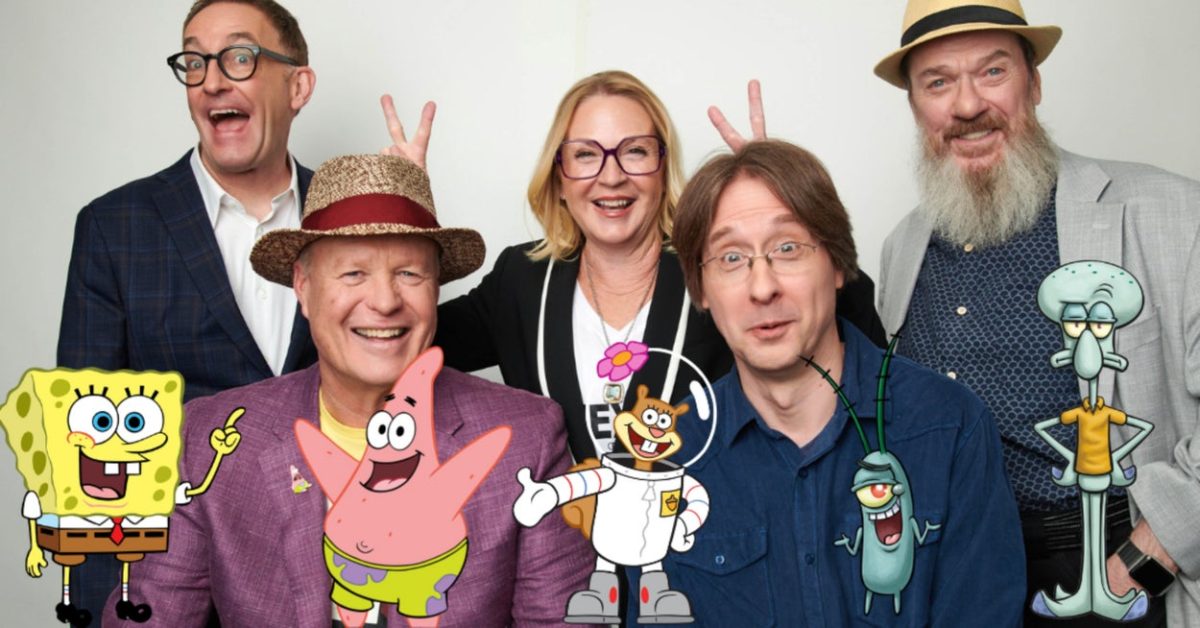
Conventional, But Engaging Rock Doc Considers The Price Of Success [SXSW]
Mar 12, 2024
From the basement of dingy jam sessions in Akron, Ohio, to arena rock success, a multiplatinum career, and multiple Grammy wins, “This is a Film About The Black Keys” tracks the unlikely rise of one of rock’s biggest duos. Directed by Jeff Dupre (“Soundtracks: Songs That Defined History,” “Marina Abramovic: The Artist Is Present”), the largely conventional rock doc doesn’t break the mold but engages, nonetheless, telling a captivating story of brotherhood, slow-grinding perseverance, weathering many personal storms, and the heavy tolls that success enacts.
READ MORE: SXSW 2024 Preview: 21 Films & Shows To Watch
Featuring its two founding members, guitarist/singer Dan Auerbach and drummer Patrick Carney, for the uninitiated (if that’s possible, they’re seemingly ubiquitous), the Black Keys are a blues rock garage duo in the vein of The White Stripes (a band they were endlessly compared to at first). But even in their earliest records, the Keys always managed to sound bigger and less stripped down.
Like many rock docs, ‘Black Keys’ begins in the basement, a random jam session to record a demo. But unlike most bands, these are not two childhood friends but instead strangers who bonded over a passion for music (“It was like an arranged marriage,” Carney says about the band and that they really got to know one another on the road). When half the musicians didn’t show up, Auerbach and Carney, and a third player who didn’t last too long, decided to go it alone, quickly bonding over their love for DIY record and capturing scrappy, raw sounds. Influenced by the similarly unpolished and patchy blue garage sounds of R.L. Burnside and blues legends like Howlin’ Wolf, the Keys forged sounds of thumping beats and visceral blues grooves correspondingly. If chain-smoked cigarettes, burnt black coffee, cheap American beer, and greasy breakfast made a band, it might sound a little like The Black Keys (perhaps also not an inaccurate assessment of how they were living at the time).
Much of ‘Black Keys’ is a biographical history lesson—how the band got their name, their start, the first labels they signed to (Alive Records, Fat Possum Records), their first gig, and how they slowly grew over the years. “We had nothing to lose,” Auerbach says about how the band just mailed out demos to anyone who would listen and finally scored an initial deal.
Perhaps what’s most interesting about the band is their mix of patience, refreshing ambition, and luck. The Black Keys emerged during the garage rock revival of the early 2000s with The Strokes, The Hives, and The White Stripes, and clearly, they wanted superstardom and the world to sit up and take notice. In what seems like a pivotal early moment between their first and second record, the band considered singing with Sire, a major label, as during the 2000s garage rock explosion, majors would try and strike it rich, gobble up bands, and spit them out when they didn’t instantly become a success.
Instead, the group signed with Fat Possum Records and wouldn’t jump to a mini-major label, Warner Bros’ imprint Nonesuch Records (once home to Wilco), until 2006; still pretty early on, but not too early to get lost in the mix of a fad that had already moved on. The duo seemed to strike the right balance of ambitious intention but was still careful about not peaking too early or seeming grubby or desperate for fame.
‘Black Keys’ is marked by a lot of resolve that eventually comes at a heavy price. The band formed in 2001 and didn’t really start taking off until 2010-ish with the record Brothers, but when success came shortly thereafter, it hit like an overwhelming tsunami that consumed their lives and caused wreckage.
These middle years are rough. While they enlisted hitmaker producer Danger Mouse to produce their fifth record, Attack And Release, and artists like Beck—who appears as a talking head—predicted they’d be huge, success didn’t come when suspected and frustrated the pair, especially Carney.
Relentless touring ground the band down to a nub, fraying their relationships, sanity, and sense of communication with one another. Alcoholism and being miserable don’t help either. Circa 2009, Carney goes through his first divorce (he gets married three times throughout the band’s life), and Aurebach’s “secret” solo record made during this period, the ominously titled Keep It Hid, alienates and further estranges the group, lighting up all of the drummer’s insecurities of being just a sideman keeping tempo (his uncertainties and self-doubt seemingly being an overall theme).
The back-to-back success of Brothers (2010) and El Camino (2011) launches them into the stratosphere and into the domain of arena rock superstardom, but mo money begets mo problems. Unable to say no to all the lucrative touring opportunities coming their way—Coachella, Bonnaroo, Lollapalooza, et al.— The Black Keys industrial complex, now that it’s become a big machine, consumes both men, leading to further divorces, heartbreak, and anguish.
Dupre’s doc portrait isn’t a fully warts-and-all cautionary tale; it wraps things up on a high note, but sometimes it comes close with a lot of highs and lows. And when the doc gets raw and vulnerable about the two men’s struggles— anxiety, heartache, and suffering, reliance on alcohol (which the doc seems to gloss over a tad), and lack of communication—this truthfulness is when it’s at its most compelling.
One can argue, ‘Black Keys dips its toes into this troubled arena but never fully dives in (a public infidelity scandal and domestic assault charge between Carney and his wife, Michelle Branch, in 2022 aren’t mentioned at all, and at the same time, where could you possibly insert it into this story without seeming gratuitous?).
Other than the five-year gap between Turn Blue (2014) and Let’s Rock (2019)—the two men admit they got through a three-year period where they barely spoke to each other and concentrated on solo projects—the doc hyper condenses most of 2017-2024 into it’s all a business-as-usual affair. While this omission of the later years’ details feels convenient, ‘Black Keys’ understands its own story rhythms. It can’t sustain itself longer than 90 minutes and thus doesn’t try; cramming more into its already vast narrative would only undermine itself.
Surviving through thick and thin and navigating the various self-destructive forces from within and outwards that threatened to pull them apart over the years, The Black Keys stand tall at the end, seemingly calmer and content elder statesmen finally having adjusted to fame. It’s maybe it’s an all-too-neat varnish. But given all the things the two men have endured over 24 years, perhaps raising a glass to toast themselves is the finish they’ve earned. Ultimately, it’s a very absorbing, very watchable documentary that goes down easy, and perhaps the taste of satisfaction is all that really matters in the end. [B].
Publisher: Source link
SpongeBob Cast Shares Heartfelt Favorite Episodes
I asked two main questions throughout our conversation. My first question: It's been 25 years of iconic quotes, hilarious episodes, and memorable moments. From the perspective of the people who voiced the characters and produced the show, is there a…
Dec 23, 2024
Erin Andrews Shares Her Celine Dion-Inspired Holiday Tradition
We interviewed Erin Andrews because we think you'll like her picks. Some of the products featured are from Erin's brand WEAR by Erin Andrews. Our writers and editors independently determine what we cover and recommend. When you buy through our links,…
Dec 23, 2024
TV Shows That Got Canceled In 2024
TV Shows That Got Canceled In 2024 Which 2024 canceled TV show will you miss the most? Share your pick in the comments! Disclaimer: This story is auto-aggregated by a computer program and has not been created or edited by…
Dec 22, 2024
How The Talk Emotionally Ended After 15 Years
The Talk has officially said "Goodbye." After 15 seasons and 2,993 episodes, the CBS daytime show came to an end on Dec. 20 with a heartfelt farewell from hosts Akbar Gbajabiamila, Amanda Kloots, Natalie Morales, Jerry O'Connell and Sheryl Underwood. The episode began with a standing ovation for the…
Dec 22, 2024











